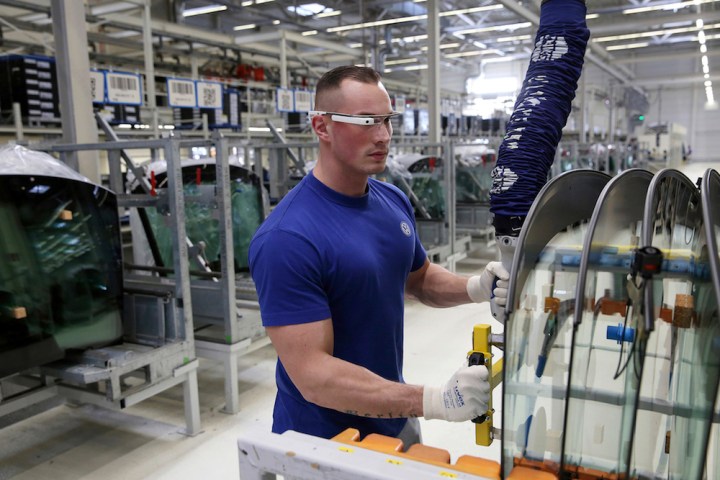
An announcement made by the company this week trumpets the take-up of a piece of kit that looks remarkably like Glass, though on its website VW makes no direct mention of Google’s face-based computer.
The German automaker says its logistics staff are now using what it describes as “3D smart glasses” at its plant in Wolfsburg following the successful completion of a three-month trial.
The high-tech specs help staff with a range of tasks, offering information on the device’s display to help them select the correct components and parts from around the workplace. Importantly, touch and voice controls allow for hands-free operation.
“The camera in the glasses is also used as a barcode reader,” VW explains on its site. “Correct barcodes on parts removed from the storage location are shown in green while parts incorrectly removed are shown in red.”
The car company says that at the moment 30 employees in various areas such as windshields or driveshafts are using the smart glasses, with plans to extend their use to other departments, plants, and brands over time.
Commenting on VW’s use of the advanced kit, Reinhard de Vries, head of plant logistics at Wolfsburg, said, “Digitalization is becoming increasingly important in production. The 3D smart glasses take cooperation between humans and systems to a new level.”
While consumers never seemed to warm to the idea of Glass and appeared increasingly wary of its implications, industry has shown a greater willingness to embrace the technology as businesses learn more about how it can aid tasks and help improve efficiency in the workplace.
Google never abandoned its Glass project, though back in January did bring the curtain down on its Explorer testing program. Since then, there have been several reports indicating interest in the gadget among a number of industries, with companies such as Boeing and UPS also launching pilot programs utilizing Google’s device.
The Mountain View company is known to be working on a new version of Glass – or several new versions – with both consumers and enterprise targeted.

